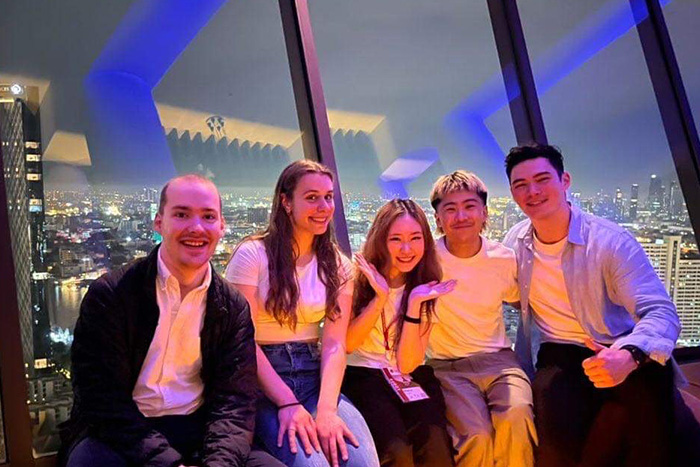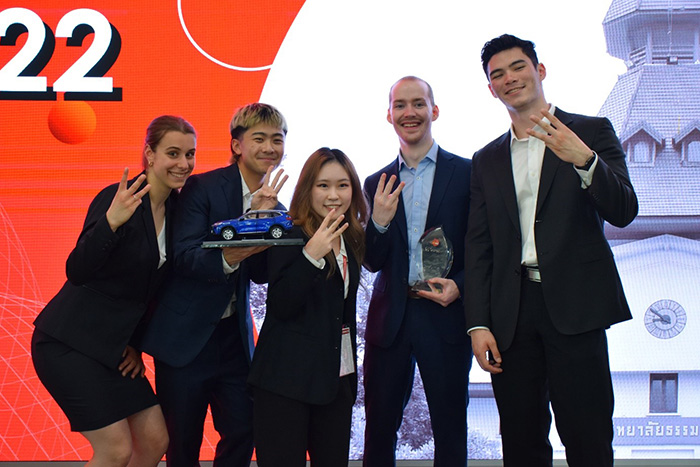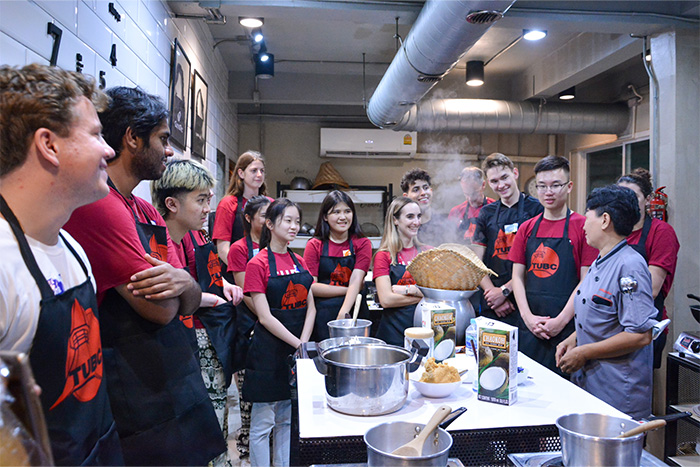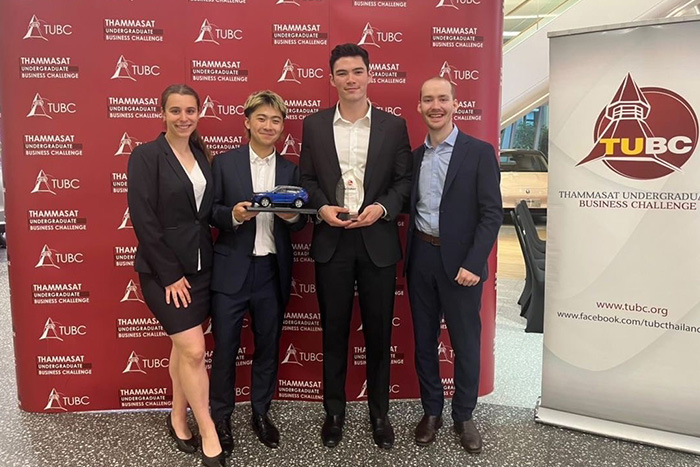University of Melbourne Pulls off the Thailand Three-Peat
By David Lawlor
David and three fellow Bachelor of Commerce students were victorious in the 2022 Thammasat Undergraduate Business Case Competition held in-person in Bangkok, Thailand. Here, he reflects on the experience.
For the past two years, most student experiences, including case competitions, were relegated to online Zoom windows and students' bedrooms. But as normality returns, so too have these events. Chief among them is the International Case Competition program, in which the Faculty of Business and Economics trains students in case consulting and sends them overseas to represent the university. I was selected alongside three other students - Max Liu, Zoe Giagoudakis and Joe Christie - to compete at the first in-person international case competition post-COVID-19: the Thammasat Undergraduate Business Case Competition (TUBC) in Bangkok, Thailand.

Case competitions challenge teams of students with a real-world business problem they must solve, before presenting their solution to company executives and senior consultants. The international scene is fierce; TUBC featured 20 of the world's foremost business schools, each sending their best and brightest. Our team was well-versed and rehearsed - Zoe, Max and Joe were fresh off back-to-back silver medals in the Alberta Not-For-Profit and Melbourne Meets case competitions. My last case competition was before the pandemic, when in Montreal a win had proved similarly elusive for my team. As such, a victory in Thailand would be a long-sought-after triumph for us all. There was added pressure to perform. The University of Melbourne team had won at Thammasat the last two times it had been held online. Defending our title for the third time, this time in person and against an invigorated slate of competitors, would be a rare accomplishment.

Once we were off the plane and greeted by Bangkok's infamously humid weather, the entire week proceeded better than we could possibly have hoped. Our delightful team buddy Nana was always by our side. Her assistance and infectious enthusiasm elevated her to an unofficial fifth team member status.
During the case, we were confined to our hotel rooms for 28 hours and tasked with determining how to forge brand trust for a global car company, Great Wall. The case demanded creativity and an acute awareness of Thailand's cultural barriers. Fortunately, the month we had spent preparing beforehand, and the week we had spent in Bangkok immersing ourselves in Thai culture enabled us to rise to the challenge.
We won our knockout group stage and proceeded to the finals, hosted at Great Wall's Thailand headquarters. Following a lengthy round of questioning posed by their executives and industry experts, we emerged with the trophy to claim the University’s third-straight victory at TUBC. What elevated our case above the field was the depth of our analysis and a creative twist on the challenge - we encouraged Great Wall to pursue EV fleets for reputable Thailand companies, unlocking a new market segment while cementing consumer trust. However, the week was not without its challenges. As Economics Honours students, Max and I had to continue writing our theses - which were due shortly after the competition - throughout the challenge. But thankfully, due to the many practice cases we'd prepared in the prior month, we were duly equipped to handle the week's strains.

Most discussions about case competitions fail to mention that the case is only a fraction of the overall experience. In fact, an in-person competition is not unlike a glass of cordial - one part case to four parts socialising. Thailand was no different. The rest of the week involved Thai activities with the other international teams. A Muay Thai session, a Thai Cooking lesson (featuring the best Pad Thai that I’ve ever had) and a visit to a local temple, Wat Arun, were the undisputed highlights of our trip. These social infusions had been absent from online competitions, and it was exciting to see them return in full force. Indeed, Joe is already planning a return to Thailand to reunite with some of the Thailand participants, and a catch-up with the University of Sydney and Auckland University teams is also underway.

In my view, the International Case Competition program is the single best program the University has to offer. It blends experience, travel, fun and competition into an intense but uniquely rewarding package. Our trip to Thailand offers two invaluable lessons. Firstly, the importance of teamwork. Our victory was a team effort - everyone was irreplaceable in their roles - and cohesion was our strength. Secondly, the importance of extracurricular activities. I don't think it is a coincidence that all four members of our team were also part of the student club 180 Degrees Consulting. Getting involved in everything the University of Melbourne has to offer cannot be overstated, and I encourage everyone to apply for the International Case Competition program (or 180 Degrees) when the time comes next year!